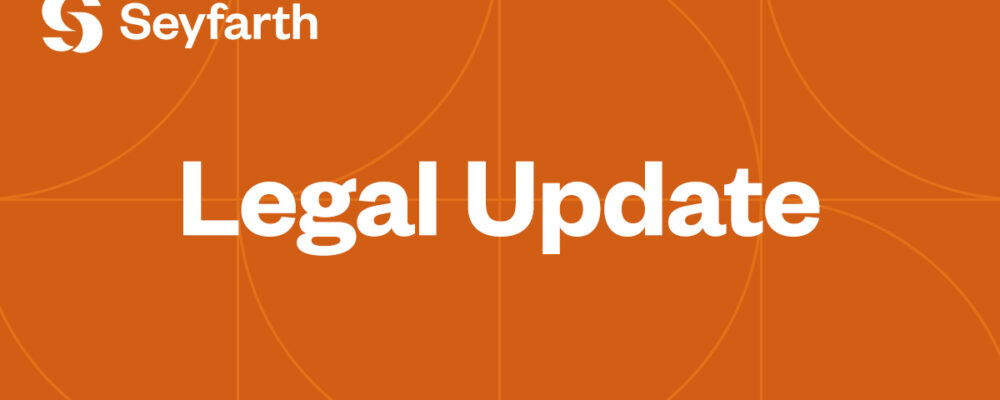The Automotive Right to Repair Working Group convened by the Maine Attorney General will review proposed legislation that would substantially amend provisions of the Maine Right to Repair Law concerning access to mechanical data from telematics-equipped vehicles. Meanwhile, it appears provisions of the law requiring manufacturers of vehicles that “use a telematics system” to comply with standards imposed by an “independent entity” designated by the Attorney General will take effect on January 5, 2025, even though neither the “independent entity” nor standards for telematics systems will exist by that date.
Maine Right to Repair Law
In November 2023, Maine voters approved a ballot initiative to require that, within one year of the effective date, vehicles using a telematics system sold in that state be equipped with an interoperable, standardized, and owner-authorized access platform across all of the manufacturer’s makes and models. The statute requires that this platform be able to “securely communicate” all “mechanical data” emanating from the vehicle; make this data “directly accessible” by the vehicle owner through a mobile-based application; and, upon authorization of the vehicle owner, “all mechanical data must be directly accessible by an independent repair facility.” The statute gives vehicle owners and independent repair facilities denied access to mechanical data a private right of action to recover treble damages or $10,000, whichever is greater.
The ballot initiative further requires the Attorney General to designate an “independent entity” to “establish and administer” access to vehicle-generated data that is transmitted by a “standardized access platform.” The “independent entity” is empowered to refer violations to the Attorney General, who in turn can “institute an action” to “enforce” the law, although no remedy for such a violation is defined in the statute. The requirements for telematics-equipped vehicles are supposed to take effect January 5, 2025—one year after the effective date of the ballot initiative—but to date the Maine Attorney General has not designated an “independent entity” to develop standards or otherwise regulate data access platforms.
Recent Developments from the Working Group
In April 2024, the Maine Legislature directed the Attorney General to convene a working group to prepare and submit a report no later that February 28, 2025 with recommendations to facilitate the adoption of further legislation to give effect to the Right to Repair Law. In August 2024, the Attorney General’s Office announced that it had convened an 11-person working group of industry stakeholders, including representatives of auto manufacturers, dealers, independent repair facilities. That working group is now poised to review proposed legislation and draft report at a December 20, 2024 meeting that would substantially overhaul the Maine Right to Repair Law.
Among the statutory amendments being considered, the working group is proposing that the Maine Legislature abandon the statutory requirement that the Attorney General designate an “independent entity” to “establish and administer” a “standardized access platform.” Rather, the working group’s draft report declares “unanimous consensus that the entity should not maintain, provide access to, or otherwise exercise control over vehicle data” and that instead, vehicle manufacturers should “remain responsible for addressing potential privacy and cyber-security issues in making data available” to owners and independent repair facilities.
To accomplish this, the working group is preparing draft legislation for the Maine Legislature to consider that would amend the statute to empower the state’s governor to appoint an 11 member “commission,” which would include three manufacturer representatives, to meet quarterly to monitor and assess implementation of and OEM compliance with the law; attempt to resolve informally complaints from owners and independent repair facilities concerning alleged non-compliance; and consider whether to refer unresolved matters to the Attorney General for enforcement. The draft legislation also would define the remedies available in a state enforcement action, empowering the Attorney General to seek injunctive relief and a civil penalty of not more than $10,000 per violation.
The working group’s report and recommendations are not due to the Maine Legislature until February 2025, one month after the statutory requirements for telematics-equipped vehicles are supposed to take effect, begging the question what requirements will actually go into effect on January 5, 2025. And, even after the working group has submitted its report and recommendations, it remains to be seen if the Maine Legislature will actually adopt proposed amendments to the Maine Right to Repair Law. In the meantime, with no “independent entity” having been designated by the Attorney General and no “standardized access platform” having been established by such an entity, there does not appear to be a platform for the independent entity to “administer” or standards for anyone to enforce.
“With approximately 900 lawyers across 17 offices, Seyfarth Shaw LLP provides advisory, litigation, and transactional legal services to clients worldwide.”
Please visit the firm link to site






